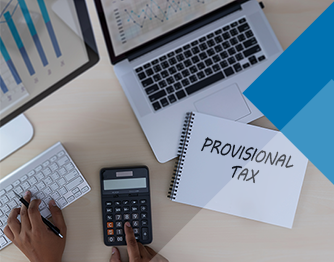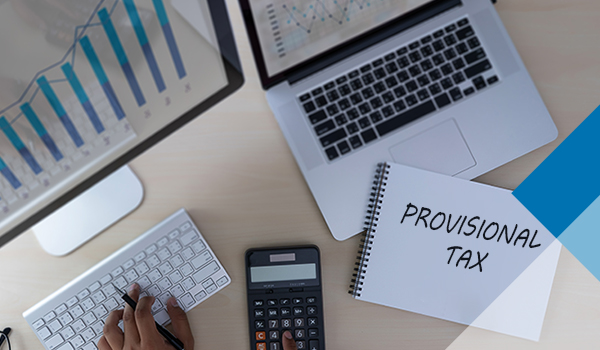 Navigating the intricacies of provisional income tax in South Africa can be daunting, but understanding the basics is crucial to avoid penalties and ensure smooth sailing with SARS. Here’s a list packed with do’s and don’ts:
Navigating the intricacies of provisional income tax in South Africa can be daunting, but understanding the basics is crucial to avoid penalties and ensure smooth sailing with SARS. Here’s a list packed with do’s and don’ts:
Who is a Provisional Taxpayer?
- Individuals:
You are likely a provisional taxpayer if:- you have income beyond your salary for example interest (above the exempt portion), rental income, foreign dividends, you earn remuneration from an employer who is not registered for employees’ tax in South Africa (for example, an embassy), and
your taxable income exceeds R30 000 and exceeds the tax threshold (R95750 for under 65’s and R148 217 for 65 and older). - Income from carrying on of a business (even if it is running at a loss).
- you have income beyond your salary for example interest (above the exempt portion), rental income, foreign dividends, you earn remuneration from an employer who is not registered for employees’ tax in South Africa (for example, an embassy), and
- Companies and Close Corporations (CC’s) are automatically considered to be provisional taxpayers in terms of the Income Tax Act.
Do’s:
- Provisional tax type on eFile if applicable: Don’t wait for SARS to remind you. If you qualify, request the provisional tax type on eFile to avoid penalties.
- File returns on time: Even for “nil” returns (zero taxable income), submit timely (August for first, February for second are the most common due dates) or 6 months before financial year and on financial year end to avoid late filing penalties.
- Estimate accurately: Dedicate effort to estimating your annual taxable income, especially for the second return.
- Pay on time: Avoid late payment penalties (10%) and interest charges by adhering to deadlines for example August and February for individuals.
- Utilize eFiling: This convenient platform streamlines registration, return submissions, and payments.
- Maintain records: Keep meticulous records of income, deductions, and calculations used for estimates. They might be required by SARS.
- Seek professional help: Don’t hesitate to consult a tax professional for complex situations, penalty negotiations, or assistance with compliance.
- Consider third payment: If you underestimate your income, make a voluntary third payment before the end of September to avoid / reduce interest charges.
- Account for Investments: Factor in interest, dividends, and capital gains from investments when estimating your taxable income.
Don’ts:
- Ignore provisional tax: Even with foreign income or an employer not deducting PAYE, you might be liable. Pay provisional tax or risk penalties.
- File late: Procrastination leads to penalties. Make timely submissions, even for “nil” returns.
Underestimate income: Strive for accuracy, especially in the second estimate. Underestimation
- penalties can be hefty.
- Forget deadlines: Mark your calendars! Deadlines vary depending on your company’s year-end (February for most).
- Miss payments: Late payments accrue interest (currently 7%), adding to your tax burden. Pay on time.
- Submit IRP6 late: Filing “nil” returns more than four months late triggers penalties. File on time, even if your income is zero.
- Ignore SARS communication: Respond promptly to SARS requests for information or clarifications regarding your estimates.
- Neglect record-keeping: Poor record-keeping makes justifying your estimates to SARS difficult. Maintain organized records.
- Overlook penalties: Don’t bury your head in the sand if you incur penalties. Explore options for remission or appeal with SARS.
Additional points:
- Provisional tax is not an additional tax but a method to spread your income tax liability throughout the year, before submitting your annual tax return.
- Understand the difference between “basic amount” and “estimated taxable income” when calculating payments.
- Different penalty calculations apply for taxpayers with income exceeding R1 million.
- Keep updated on SARS regulations and any changes to deadlines or rates.
When should it be paid?
- The first provisional tax payment must be made within six months of the start of the year of assessment. For years of assessment starting March, this will be 31 August, if it is a business day, or the last business day before that date if it falls on a Saturday, Sunday or public holiday.
- The second payment must be made no later than the last working day of the year of assessment. This will be the last business day of February.
- The third payment is voluntary and may be made: for companies with a year end of the last day of February, and any other person (other than a company), the last business day of September; in any other case, within six months of the end of the year of assessment.
Following these do’s and don’ts will equip you to navigate provisional income tax smoothly. Remember, timely filing, accurate estimations, and proactiveness are key to avoiding penalties and ensuring a healthy relationship with SARS.
If you have any enquiries, please contact your Accountant or Tax official at FHBC.
Source Reference:

